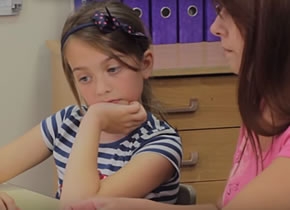
Request a full Catch Up® information brochure and details of our free information webinars
Find out more
This really interesting question came into the Catch Up® office and set us all thinking. We quickly realised we didn’t have enough information to provide an answer so we turned to our maths guru, Dr Ann Dowker, (whose research Catch Up® Numeracy is based on) and she told us:
Catch Up® is the working name of The Caxton Trust, a not-for-profit charity registered in England and Wales (1072425) and Scotland (SC047557) as well as a company limited by guarantee (03476510). Catch Up is a registered trademark.
The Catch Up® Web site use "cookies" to help you personalise your online experience. A cookie is a text file that is placed on your hard disk by a Web page server. Cookies cannot be used to run programs or deliver viruses to your computer. Cookies are uniquely assigned to you, and can only be read by a web server in the domain that issued the cookie to you.
Click on the different category headings below to find out more. You can change your default settings very easily. To turn cookies on, click the button to the right. To turn cookies off, click the buttons to the left. Please read our cookie policy to find out more.
Performance monitoring cookies: Google Analytics cookies (_ga,_gid) - these can last up to 2 years.
Strictly necessary cookies used by the site content management system: PHPSESSID (used to record your logged in session) and allow_cookies (used to record that the user has consented to cookies) - these are either temporary (session) cookies or expire after no more than 30 minutes and are used to provide functionality as you navigate around the site and allow you to access secure areas.